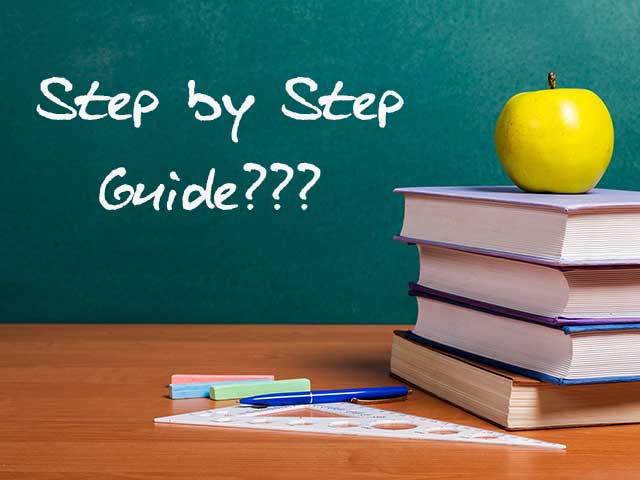Table of Contents
Teaching kindergarten for a living is a very rewarding career, but getting started can be difficult. Kindergarten teachers, unlike some Pre-K teachers, must undergo an extensive application and testing process before applying for a job. Understanding this process is critical if you want to be a kindergarten teacher.
Consider becoming a kindergarten teacher if you enjoy working with children and have a strong interest in education. You must meet certain educational requirements and obtain your state teaching certificate. Because both will take time, you should consider how much you’ll devote to this career path.

Kindergarten teachers guide students through their foremost years of school. They function in public and private schools, teaching young children the fundamentals that will serve as foundations for later years of education. Teaching kindergarten can be a school’s most rewarding and difficult job. It takes perseverance and a love of children. This guide explains what kindergarten teachers do, how to become a kindergarten teacher, and the typical salary and job outlook.
What exactly is a kindergarten teacher?
Kindergarten teachers are early childhood educators who teach children in kindergarten, typically five years old and the year before first grade. Some kindergarten teachers may have a specialty to teach in other subject areas, such as music or art, in addition to their traditional teaching requirements. They are responsible for various tasks, such as creating lesson plans, keeping grade books, and administering tests.
A kindergarten teacher works with children to encourage academic, physical, and social development. They teach students using engaging and hands-on teaching methods and tools such as games, music, art, books, and computers. So that the kindergarten teacher can keep order in the classroom, children are taught general rules of acceptable behavior. They teach their young students one-on-one or in groups, adapting their teaching methods to meet their students’ varying needs and interests. Kindergarten teachers play an important role in children’s development; they must communicate effectively with their students and instill trust and confidence in them.
What is the assignment of a kindergarten teacher?
Kindergarten teachers teach fundamental skills like color, number, shape, letter recognition, phonics, basic personal hygiene, and social skills like sharing and interacting with peers. Teachers frequently read aloud to their classes, demonstrate activities, and encourage class participation. They allow their students to learn through exploration and hands-on discovery using various materials and resources.
Kindergarten teachers plan materials, lessons, and projects for their students while observing and assessing their students’ performance, skills, behavior, and social development; they also keep an eye out for potential problems such as health, developmental, or emotional issues. They meet with parents of children regularly to update them on progress and concerns. Except when attending assemblies, eating lunch, or having recess, teachers and kindergarteners usually stay in the same classroom.
Responsibilities of a Kindergarten Teacher
Kindergarten teachers are in charge of a wide range of responsibilities. Here are some of the typical responsibilities you’ll have in this field:
- Kindergarten instruction in an elementary school classroom
- Developing lesson plans
- Test administration
- Students are taught various subjects such as mathematics, science, language, and others.
- Using various mediums to teach students the fundamental skills they require
- Giving students hands-on learning opportunities
- Keeping track of students’ grades
- Examining and grading homework
- Keeping current on educational issues
- Making incentives to keep students interested
- As needed, tutor students one-on-one.
- Determining whether or not initiatives are met
- Assessing the performance of each student
Also Read: How Dining Table Mats Instantly Accentuate Your Interiors and Offer Superior Functionality

The time it takes to become a kindergarten teacher
Attending college after high school usually takes four years to become a kindergarten teacher. Becoming a teacher requires a bachelor’s degree, and undergraduate programs typically last four years. Depending on your course load, you could complete your Bachelor’s degree in three years.
You may also need a state teaching certificate to become a kindergarten teacher. You can earn your certificate while still in college. If your undergraduate program is relevant to your field, you may only need to take a few courses, pass the certification exam, and finish the teacher preparation program.
If you do not pass your certification tests by the end of the school year, you must retake them to start the next school year. You may sometimes be hired for a job without your certificate, but your employer will require you to obtain it within a certain time frame. If you don’t have a bachelor’s grade in the subject you want to instruct, you can enroll in an alternative teaching certification program. This can take between one and two years.
A master’s degree may be required as well. If this is the issue, you will need to add one to two years to the time it took to obtain your Bachelor’s degree and certification. The time it takes to become a kindergarten teacher will vary greatly, but it will typically take four to eight years.
Kindergarten teacher abilities and characteristics
Here are some qualities and skills you should cultivate before and during your kindergarten teaching career:
- Empathy: Because you will teach young students, you must understand their feelings and concerns.
- Creativity: As a kindergarten teacher, you must be able to curate original ideas to keep your students engaged in the classroom. This will enable them to be more creative and discover new ways to express themselves artistically.
- Patience: Because you will be working with younger students, you must be patient or be able to endure certain difficult circumstances.
- Classroom management abilities: As a kindergarten teacher, you must manage your classroom effectively. This entails fairness and ensuring everyone has access to a suitable learning environment.
- Communication abilities: As a teacher, you must communicate orally and in writing effectively. This is because most of your day will be spent conversing with students and coworkers.
- Dedication: To be a good teacher, you must provide high-quality education.
- Conflict resolution: Because you’ll be working with a diverse range of personalities, it’s critical to be able to defuse any conflicts that arise.
- Organizational skills: It is critical to maintaining an orderly classroom to ensure a good learning environment. You’ll also need to organize your files and grading system.

How to Get a Job as a Kindergarten Teacher
How to become a kindergarten teacher? To be a kindergarten teacher, you should first gain experience working with younger children. This can include working as a teacher’s aide, assisting at a daycare center, or observing a kindergarten class. If you still want to be a kindergarten teacher, take the following steps to get started:
Get your Bachelor’s degree: A Bachelor’s Degree in Childhood Education or another related field from an accredited, state-approved program is required to become a kindergarten teacher. Check to see what degrees each school offers and what your state requires. Undergraduate degrees typically take four years to complete.
Finish a student teaching internship: Depending on the program, you may be required to complete a teaching internship before receiving your teaching certificate. This will give you classroom experience and allow you to be mentored by professionals in your field.
This process usually takes one to two semesters, but you’ll finish it during your undergraduate studies. During the first few weeks of your internship, you will most likely observe a teacher in their classroom and teach a few lessons under the supervision of a mentor. In the second half of your internship, you will design your lesson plans and curriculum in a classroom supervised by a licensed teaching professional.
Get your teaching certification: If you want to guide in a public school, you’ll need to be certified by the state where you want to work. You may or may not require state teaching permission if you want to teach in a private school. The specific requirements of the school will determine this. It’s also important to remember that each state has its licensing requirements. You can learn more about your state’s requirements by contacting its Board of Education.
The time it takes to obtain certification varies depending on the individual. Most people apply for certification while still in college and can become kindergarten teachers in four years. If you have a bachelor’s degree in a field other than education, you’ll need to complete an alternative teaching certification program, which can take one to two years.
Apply for positions: Once you’ve met the requirements, you can start looking for kindergarten teaching jobs. Use Indeed to help you with your job search, and remember to double-check all required qualifications in each listing. Indeed can also assist you in creating a teaching resume and cover letter.
Get your graduate degree: Relying on your state, you may be required to have a master’s degree. During your graduate studies, you can broaden your knowledge of early childhood education while participating in research in your field. This will extend your timeline by one to two years.
Step-by-step detailed procedure of how to become a kindergarten teacher

Finishing Your Studies
- Acquire a bachelor’s degree in early childhood education
This degree can be achieved in four years, depending on your school. You must complete your undergraduate degree to teach kindergarten in a public school. Private school systems frequently provide more credential flexibility to potential teachers. Child development and elementary education are viable undergraduate degrees for kindergarten teachers.
Check to ensure you’ve completed all your state’s course requirements. While many state-specific differences can be ironed out during the testing process, reviewing what classes your state requires before you can be certified may be beneficial.
- To gain classroom experience, complete 1-2 semesters of student teaching
All students in early childhood education programs are required to complete a preparatory teaching program. This program will provide valuable classroom experiences, such as lesson planning and grading. Student teaching is an excellent stepping stone toward a full-time position as a kindergarten teacher.
Student teaching will provide you with more hands-on teaching experience than your classes. If you’re unsure about something, don’t be afraid to ask your teacher-mentor for clarification. While connecting with students is important, remember that your primary role in the classroom is that of a teacher, not a friend.
- Make contact with other teachers.
Don’t be afraid to reach out to your teacher-mentor, professors, and classmates during your time as a student teacher. Knowing various people in the education field can help you a lot on your path to becoming a kindergarten teacher, especially in the references section of a resume. Volunteering in other educational roles (for example, as a teaching assistant) can also help you make important contacts in the field.
- Enroll in a Master of Education (M.Ed) or Master of Teaching (MIT/MAT) program to sharpen your teaching focus
Although it is not required, enrolling in a graduate program can help you stand out as a kindergarten teacher. An MIT/MAT allows you to specialize in a particular subject and grade level, whereas an M.Ed allows you to concentrate on various aspects of teaching (i.e., curriculum). If either of these programs could improve your teaching quality, consider enrolling.
Teachers with a graduate degree earn approximately $200 more per week than teachers with only an undergraduate degree. Many people obtain their Masters’ degree while still in the first, second, or third year of teaching.
Obtaining Certification
- Determine which Praxis exams are required in your state and register for them
These tests will vary depending on where you live. You will almost certainly be needed to take the Praxis Core Academic Skills exam, assessing your general teaching knowledge. Other states may have different independent testing procedures.
Relying on where you live, you may also be required to take subject-specific Praxis tests. Teachers in Pennsylvania, for example, must take the Praxis Core Academic Skills exam in addition to two Subject Area Competency tests. In contrast, Missouri teachers must take the Missouri Educator Gateway Assessments. You must pay a registration fee for Praxis exams, which can be paid electronically.
- Apply for your teaching license
The application procedure varies by state, but generally, a Bachelor’s degree, in-class teaching experience, and completed Praxis exam scores are required. To begin the application process, consult the FAQ section of your state’s Department of Education website.
Only teachers in public schools are required to apply for certification. It is not required in all private schools. In most cases, substitute teaching does not necessitate certification.
- Create a portfolio to highlight your teaching experience
While creating a portfolio to obtain your certification is not required, it can be extremely beneficial in terms of organization. A teaching portfolio typically contains a variety of paperwork, such as letters of recommendation and exemplary work samples. You can also use your portfolio to keep copies of your paperwork together while you wait for your certification.

Obtaining Employment
- Have your resume ready
Before applying for jobs, ensure you have a paper and digital copy of your resume. When sending your resume digitally, PDF files are an excellent format to use. You should include a summary of your teaching experience, focusing on elementary and kindergarten education.
Make your resume format as appealing as possible to stand out to potential employers. Double-check your language to ensure it is as informative and concise as possible.
- Look for jobs in the area.
Search for jobs in your area using a search engine (e.g., Indeed, Glassdoor, Monster, etc.). Before looking for jobs, consider how far you’re willing to travel. This will help you narrow down your options. Keep an eye out for workplace reviews, as they are frequently included on job search sites for various employers.
- Prepare a cover letter.
Employers don’t usually spend much time reviewing your application, so make your cover letter as memorable as possible. Customize your letter to a specific employer, and explain why you would be an excellent fit as a kindergarten teacher at their school. Overall, you want to leave a positive impression on the employer.
- Submit multiple job applications
While you may have a dream job, you should apply for more than one job. Employers’ response times can vary, so it’s important to have several options available. Many online job boards allow you to apply for jobs digitally, making the process easier. Don’t be afraid to contact the employer again! If you haven’t heard anything after 1-2 weeks, send a letter or email inquiring about your application.
- Get ready for the job interview.
When going for a job interview, make sure to arrive early. You can also plan by anticipating the interviewer’s questions and tailoring your responses accordingly. Proper preparation can assist you in leaving a lasting impression on your interviewer.
- Attend any additional classes that are required
Once hired as a kindergarten teacher, you may be required to take additional courses to maintain your teaching certification status. Check with your state’s requirements to see if you need to obtain any continuing education credits.
If you are uncertain whether you need to take a supplementary course, check to see if your alma mater has any resources to assist you.
Once you’ve taught for at least three years, you might apply for National Board Certification. This will distinguish you as a distinguished educator and enable you to network with other nationally certified educators.
Kindergarten Teacher Salaries and Job Prospects
Kindergarten teachers earned a median annual salary of $54,550 in 2015. Benefits will differ depending on the employer. Salary typically rises with years of service. This career area is expected to grow at a moderate rate through 2024, with a 6% increase in job opportunities. Kindergarten teachers can work in public elementary schools, private schools, and childcare centers.
Conclusion
First and foremost, prospective kindergarten teachers must enjoy working with children. Most of their day will be spent teaching, caring for, and nurturing small children, and they will be one of these students’ first role models as one of the primary authority figures in their lives. Kindergarten teaching can be both stressful and rewarding. Patience, creativity, and excellent communication skills are essential for those interested in becoming kindergarten teachers. We expect you have an idea about becoming a kindergarten teacher.
Frequently asked questions on how to become a kindergarten teacher

Is a kindergarten teacher required to work alone in the classroom?
An assistant or aide usually assists the kindergarten teacher throughout the day. This assistant will assist with all lessons, activities, and classroom organization. Students may also be taken to art classes or recess by different teachers. The average student-to-teacher ratio varies greatly by state.
Can a kindergarten teacher also teach other grades?
With a bachelor’s degree in early youth education and a state teaching license, a kindergarten teacher can teach up to third grade and, in many states, up to sixth grade.
Is there a high demand for kindergarten teachers?
Yes, kindergarten teachers are in high demand, with most markets expanding. Teaching other grades is also advantageous when looking for a job.
Is there room for advancement for a kindergarten teacher?
Yes, with ongoing education. A master’s degree allows a kindergarten teacher to advance to more advanced and specialized teaching areas with a higher average salary. There are numerous opportunities for career advancement within the school and education systems.
Are kindergarten teachers paid during the summer?
Kindergarten teachers in the public school system are typically paid ten months out of the year. Some positions pay twice a month for a year, while others pay bi-weekly for ten months. The total salary should be the same.
How long does it take to become a kindergarten teacher?
Traditionally, a bachelor’s degree program in elementary education that prepares students to teach grades K takes four years to complete. However, depending on factors such as transfer credits or online, self-paced formats, some programs may allow pupils to complete their degree in as little as 18 months. Kindergarten teachers can begin teaching after graduating and obtaining their state license, and some may go on to pursue their master’s degree, which typically takes another 1 to 2 years.


